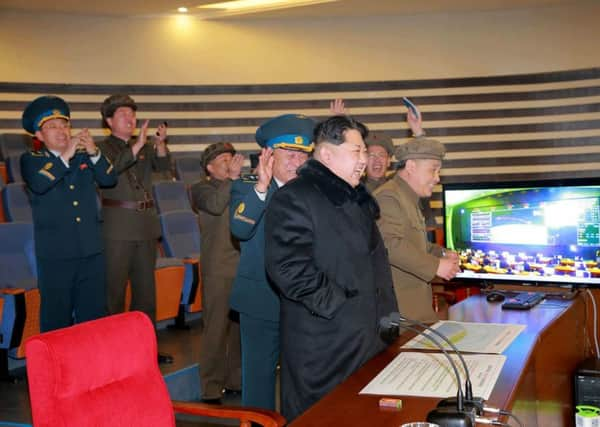North Korea rocket launch labelled '˜a provocation'


For South Korea’s president, and other world leaders, it was a banned test of dangerous ballistic missile technology and yet another “intolerable provocation”.
The rocket was launched from North Korea’s west coast only two hours after an eight-day launch window opened yesterday morning, its path tracked separately by the United States, Japan and South Korea. No damage from debris was reported.
Advertisement
Hide AdAdvertisement
Hide AdNorth Korea, which calls its launches part of a peaceful space programme, said it had successfully put a new Earth observation satellite, the Kwangmyongsong 4, or Shining Star 4, into orbit less than ten minutes after lift-off. It vowed more such launches.
The launch follows North Korea’s widely-disputed claim last month to have tested a hydrogen bomb. Washington and its allies will consider the rocket launch a further provocation and push for more tough sanctions.
The US and Japan quickly requested an emergency meeting of the UN Security Council yesterday, saying Pyongyang had violated a council ban on ballistic missile launches.
Rocket and nuclear tests are seen as crucial steps toward the North’s ultimate goal of a nuclear armed missile that could hit the US mainland.
North Korea under leader Kim Jong-un has pledged to bolster its nuclear arsenal unless Washington scraps what Pyongyang calls a hostile policy meant to collapse its government. Diplomats are also pushing to tighten UN sanctions because of the North’s nuclear test on 6 January.
In a development that will worry both Pyongyang and Beijing, a senior South Korean Defence Ministry official said that Seoul and Washington have agreed to begin talks on a possible deployment of the THAAD missile defence system in South Korea.
North Korea has long decried the 28,500 US troops stationed in South Korea, and Beijing would see a deployment of THAAD, which is one of the world’s most advanced missile defence systems, as a threat to its interests in the region.
In a statement, North Korea’s National Aerospace Development Administration praised “the fascinating vapour of Juche satellite trailing in the clear and blue sky in spring of February on the threshold of the Day of the Shining Star.”
Advertisement
Hide AdAdvertisement
Hide AdJuche is a North Korean philosophy focusing on self-reliance; the Day of the Shining Star refers to the 16 February birthday of former dictator Kim Jong-il.
North Korea has previously staged rocket launches to mark important anniversaries.